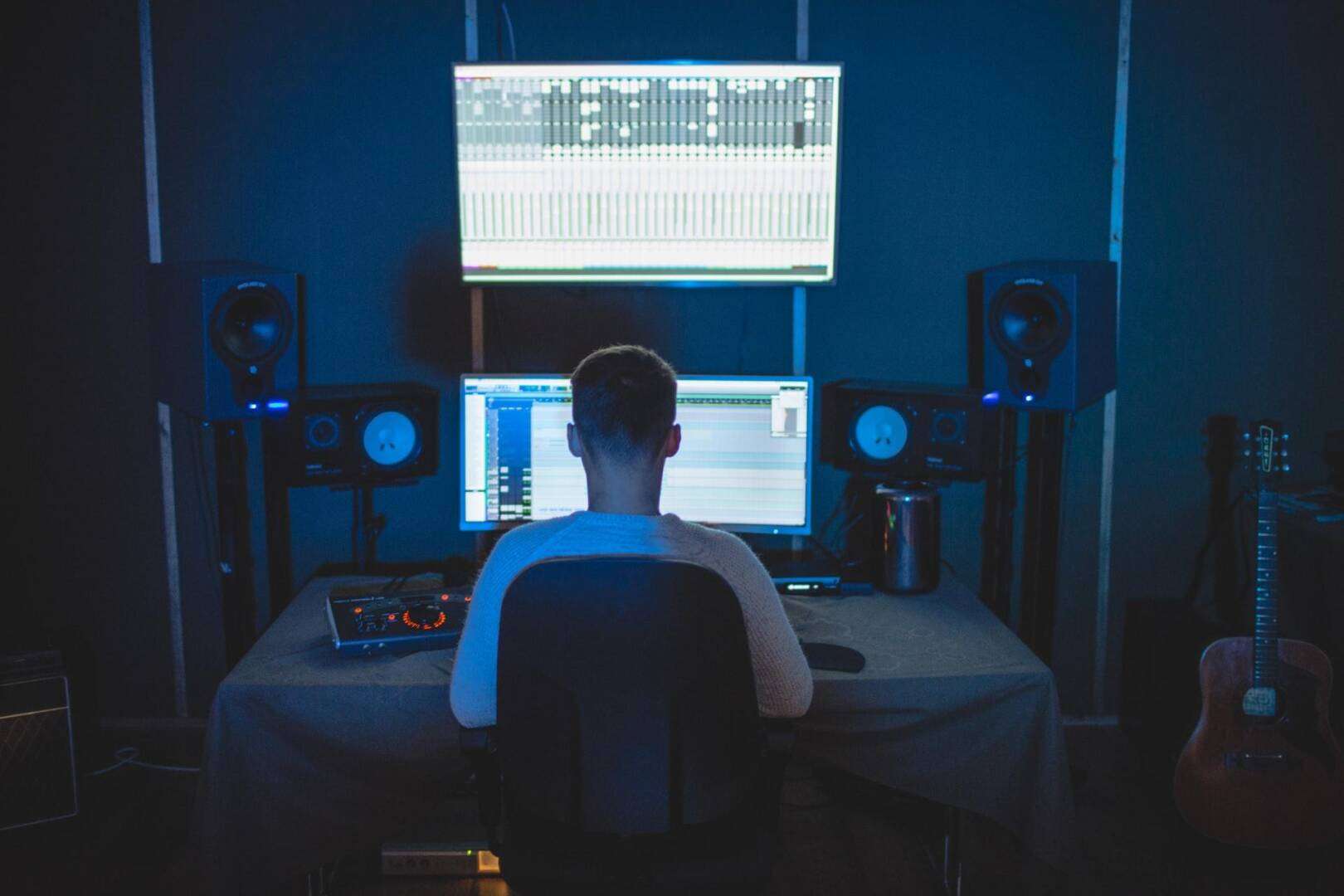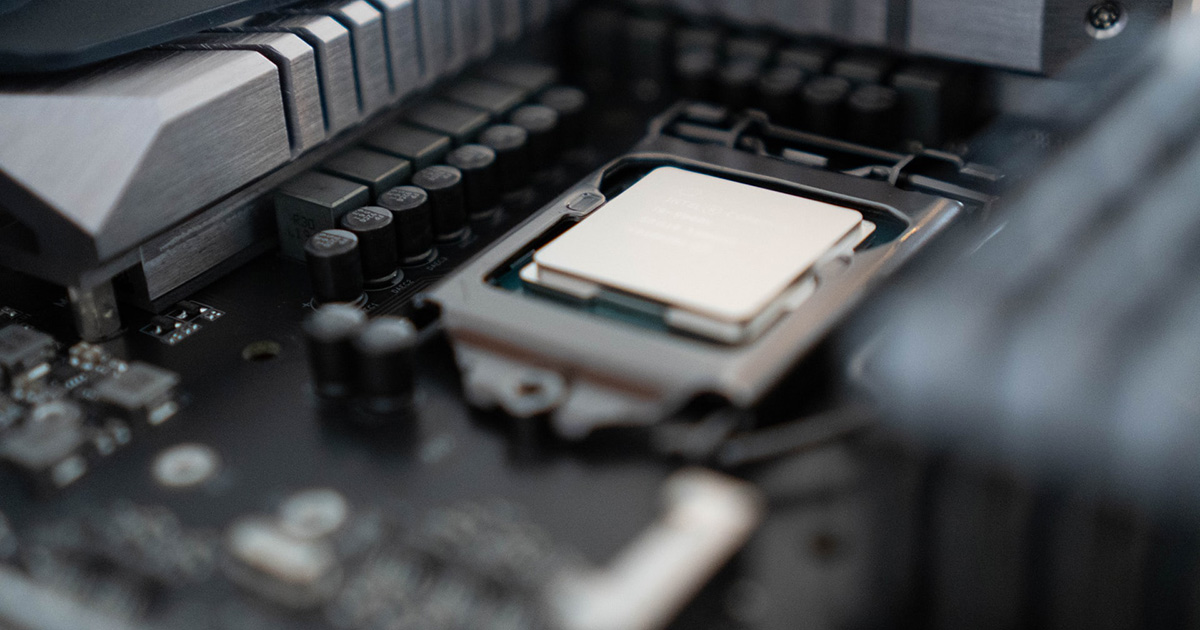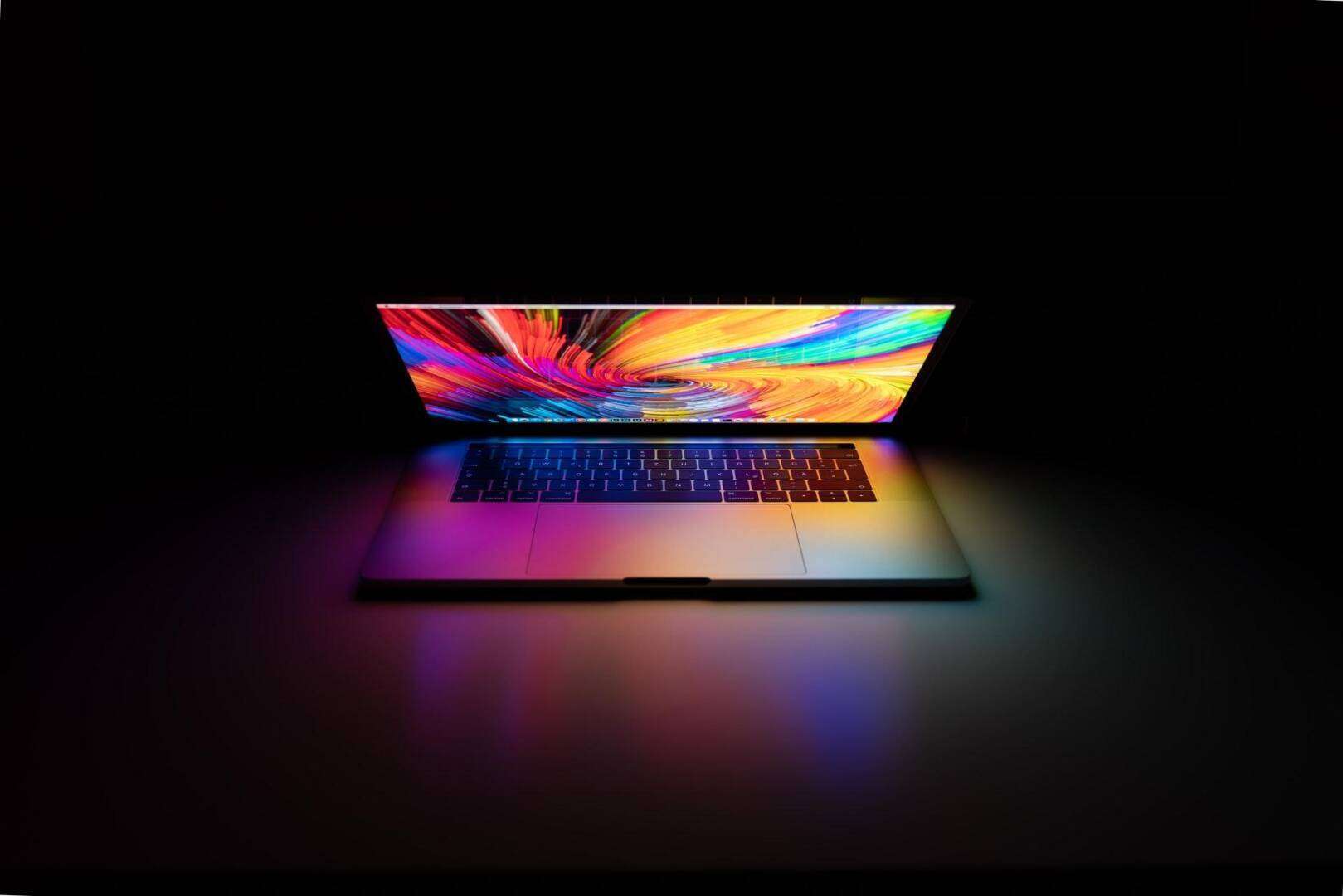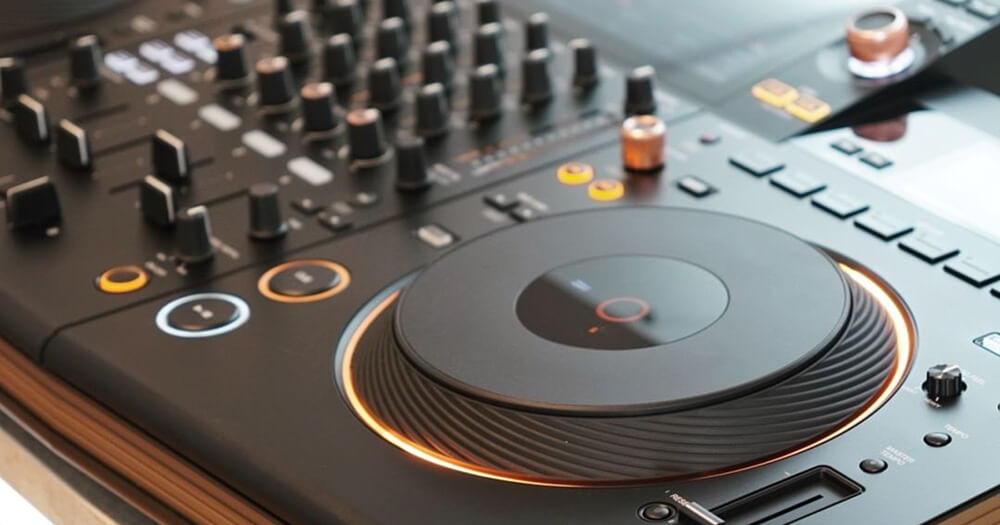Unless you need a portable setup, there’s no reason to compromise on power and performance when you produce music. While laptops offer versatility, even the best options fall just short of a quality pre-built computer for music production.
While many musicians prefer to customize their rigs one component at a time, a pre-built music production workstation is a more convenient, less time-intensive alternative—and you can just open it, set it up, and start producing beats in a few minutes.
A good pre-built music production workstation doesn’t cost exorbitantly more than the equivalent parts, which should leave you some cash for a decent audio-interface.
While you’ve heard our recommendations on tons of gear from MIDI controllers to studio monitors, many music producers have asked us for advice on a computer that they can use out of the box.
After spending a time of research trying out different machines, we found the pre-built music production workstations that casual producers and seasoned veterans alike can enjoy the most.
What to Consider
Why Buy a Pre-Built Music Production Workstation?
While you’ll encounter advice from various sources advocating for building your own music production setup from scratch, the primary reason for opting for a pre-built option is to skip the additional effort and start producing music right away. Pre-built music production workstations typically come at a slightly higher cost compared to assembling your own piece by piece; however, this added cost essentially accounts for the value of your time and labor.
Assembling a music production setup part by part is not as challenging as it once was—these days, most components like the CPU and SSD are relatively easy to install and fit into place. Nevertheless, the ease of doing so is not the main concern.
For most musicians, choosing a pre-built music production workstation is more about minimizing the time, energy, and effort involved in music production. Building your own setup requires decisions on every major piece of hardware in the workstation and spending at least a few hours assembling it on your own time.
CPU
The CPU of a music production workstation is determined by several key factors, including the number of cores, thread count, clock speed, and thermal design power. While you can delve into the details of each specification, in practical terms, you can select a CPU based on the brand of the processor and the model that’s been installed.
The two major brands in this space are Intel and AMD. Intel Core Processors range from i3 to i5, i7, i9, and X. Cutting to the chase, i5 and above should handle high-load music production DAW tasks smoothly without lag, and i9 and above will ensure robust performance while producing music. Just make sure you choose a new generation – noted by the model number (such as i7-14xxx or i7-13xxx)
AMD’s lineup includes three key models to consider: AMD Ryzen 5, 7, and 9. All three of these processors will handle music production tasks without any lag or reduction in performance. The Ryzen 9, in particular, is acclaimed as one of the best in its class.
Internal Storage and RAM
Storage and memory in your music production workstation are divided into two essential components: random access memory (RAM) and storage. RAM indicates short-term usage. The more RAM your workstation has, the more tasks it can handle simultaneously.
Increased RAM contributes to smoother performance and reduces the strain on your main software and storage. While you might be able to run most music production tasks with just 8 gigabytes of RAM, high-performance workstations offer 16 gigabytes or more, ensuring seamless operation of any program or music production software.
Internal storage is where the majority of your music files, programs, and project save states will be stored. This is the traditional concept of what can be saved “on the computer.” Many desktop music production workstations, in particular, come with a substantial amount of internal storage, with several exceeding one terabyte.
Alienware Aurora R16
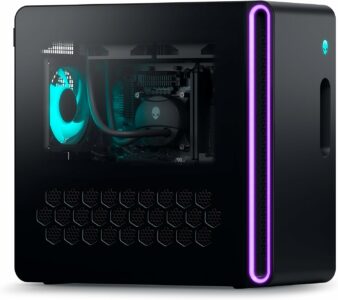
The Alienware Aurora R16 has earned attention not only for its stylish design and minimal noise output but also for its effective performance relative to its cost. Among Alienware aficionados, the Aurora R16 is recognized for delivering a refreshing design that breathes new life into the creative workspace.
Users applaud the seamless and user-friendly setup process, finding it incredibly easy and intuitive. Dell’s implementation of an automatic diagnostic routine during the initial power-up ensures that the Aurora R16 is not only aesthetically pleasing but also primed for efficient music production.
Delving into the internal specifications, the 1TB SSD + 1TB HDD internal storage setup proves invaluable for prolonged music production without the need for an external hard drive. The Intel i7 processor ensures that the system can effortlessly handle the demands of the latest generation of music production software without any performance hiccups.
Moreover, this prebuilt PC operates in near silence, providing a conducive environment for music creation. The impressive array of connectivity options further enhances its appeal, allowing music producers to seamlessly integrate a broad range of peripherals and devices into their workflow.
Lenovo Legion Tower 5i Gen 8
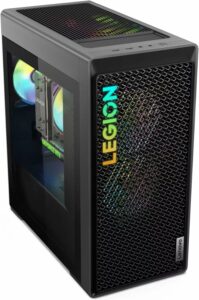
For those who don’t like the Alienware route, Lenovo’s Legion Tower 5i Gen 8 powerhouse featuring an i7-13700F, 64GB DDR5 RAM, 2TB SSD and GTX 4070 GPU.
Furthermore, the premium case adorned with customizable RGB lighting, adds a touch of flair to your studio. The inclusion of quiet fans ensures a tranquil working environment, allowing you to focus on your music production without unnecessary background noise.
While the inclusion of a GTX 4070 GPU might be excessive, this machine excels in every department of content creation including rendering videos, graphic design, music production and more.
This desktop also provides ample expansion room, allowing you to grow and upgrade your setup effortlessly over time. However, it’s essential to note that there’s no front USB-C port, a consideration for those with a preference for or reliance on this particular connectivity option.
Despite this minor drawback, the overall performance and design make it a compelling choice for those prioritizing power and aesthetics in their music production workstations.
Corsair Vengeance i7400 Series
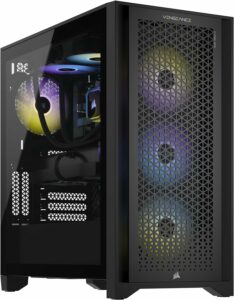
Offering a commendable level of power without the hefty price tag seen with a Lenovo Legion model, the Corsair Vengeance i7400 stands out as a cost-effective option for those invested in music production.
This pre-built machine comes in a variety of specifications including i7 and i9 processors, depending on your budget and requirements.
Speaking from personal experience, the slightly higher price tag compared to a DIY build may be worth it, considering the convenience, warranty, and tech support that come with the Corsair Vengeance i7400.
In my current busy lifestyle, these factors have proven invaluable, allowing me to focus on music creation rather than tinkering with a PC.
This PC is an excellent choice for individuals who prioritize spending their valuable time on music production over the intricacies of assembling and maintaining a DIY system.
Dell XPS Desktop (8960)
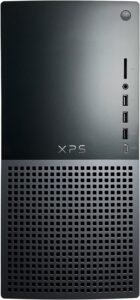
If you don’t need fancy looks or lights, the Dell XPS Desktop (8960) transcends its ostensibly business-oriented visage to reveal a powerhouse tailored for music production enthusiasts. Far from a mundane office cog, this pre-built PC redefines the conventional aesthetic norm with a subtlety that belies its impressive capabilities, making it an understated gem for those attuned to the nuances of music creation.
While ostentatious RGB lighting may dazzle the gaming crowd, the XPS Desktop (8960) opts for a restrained elegance that aligns with the disciplined ethos of music production. Its unassuming exterior conceals a realm of sheer power, assuring that your creative endeavors are met with the responsiveness and efficiency needed to bring musical ideas to fruition.
The XPS Desktop (8960) further distinguishes itself by offering a bountiful selection of ports, a crucial feature for music producers who often require a diverse array of peripherals. Coupled with the inclusion of Wi-Fi 6E, it seamlessly integrates into modern studio setups, facilitating connectivity with external devices and enhancing the collaborative potential of your music production workflow.
Investing in this pre-built PC becomes a sensible choice, especially considering its current price point of under $1400 on Amazon. The Dell XPS Desktop (8960) not only emerges as an affordable option but also offers a gateway to a world of music production possibilities. Its decent upgrade potential ensures that, as your creative pursuits evolve, the PC can grow with you, making it a sound investment for the long-term trajectory of your music production endeavors.
Mac Mini M2
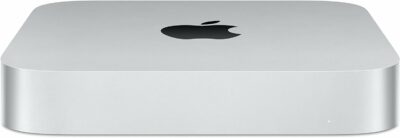
The Apple Mac Mini M2 emerges as a standout choice for music producers, blending technological prowess with the nuanced requirements of creative music composition.
With an advanced M2 processor at its core, this compact powerhouse, delivers a substantial performance boost. Right now, you can even pickup a refurbished model on Amazon for pretty cheap.
What sets the Mac Mini M2 apart is not only its technological might but also its acknowledgment among music production enthusiasts. The M2 Pro variant, in particular, receives resounding praise for its ability to withstand the rigors of music production.
Be on the look out for the M3 Mac mini and M3 Pro Mac mini early in 2024. In fact, it looks like you can pre-order through the official Apple website.
